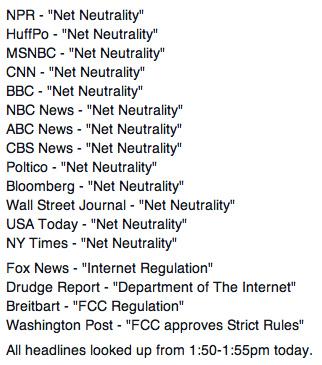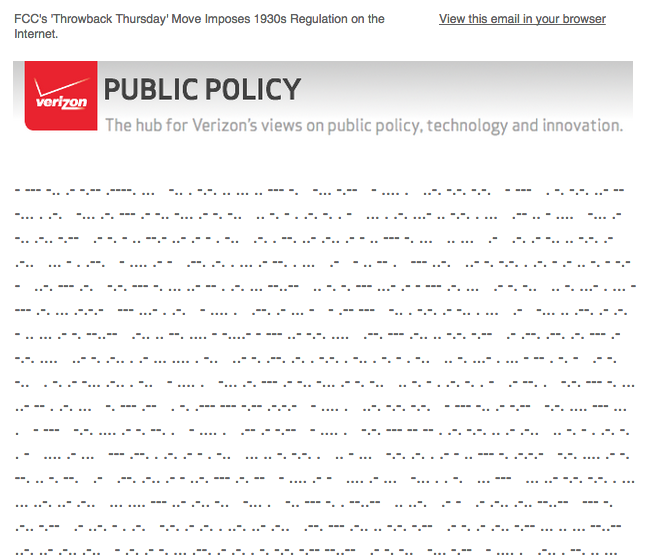Fury Sense
Member
http://www.nytimes.com/2015/02/27/technology/net-neutrality-fcc-vote-internet-utility.html
Mobile data service for smartphones and tablets, in addition to wired lines, is being placed under the new rules. The order also includes provisions to protect consumer privacy and to ensure that Internet service is available for people with disabilities and in remote areas.
Before the vote, each of the five commissioners spoke and the Republicans delivered a scathing critique of the order as overly broad, vague and unnecessary. Ajit Pai, a Republican commissioner, said the rules were government meddling in a vibrant, competitive market and were likely to deter investment, undermine innovation and ultimately harm consumers.
The Internet is not broken, Mr. Pai said. There is no problem to solve.
The impact of the new rules will largely hinge partly on details that are not yet known. The rules will not be published for at least a couple of days, and will not take effect for probably at least a couple of months. Lawsuits to challenge the commissions order are widely expected.
The F.C.C. is taking this big regulatory step by reclassifying high-speed Internet service as a telecommunications service, instead of an information service, under Title II of the Telecommunications Act. The Title II classification comes from the phone company era, treating service as a public utility.
But the new rules are an à la carte version of Title II, adopting some provisions and shunning others. The F.C.C. will not get involved in pricing decisions or the engineering decisions companies make in managing their networks. Mr. Wheeler, who gave a forceful defense of the rules just ahead of the vote, said the tailored approach was anything but old-style utility regulation. These are a 21st-century set of rules for a 21st-century industry, he said.
Opponents of the new rules, led by cable television and telecommunications companies, say adopting the Title II approach opens the door to bureaucratic interference with business decisions that, if let stand, would reduce incentives to invest and thus raise prices and hurt consumers.
Today, the F.C.C. took one of the most regulatory steps in its history, Michael Powell, president of the National Cable and Telecommunications Association and a chairman of the F.C.C. in the Bush administration, said in a statement. The commission has breathed new life into the decayed telephone regulatory model and applied it to the most dynamic, freewheeling and innovative platform in history.
Supporters of the Title II model include many major Internet companies, start-ups and public interest groups. In a statement, Michael Beckerman, president of the Internet Association, which includes Google, Facebook and smaller online companies, called the F.C.C. vote a welcome step in our effort to create strong, enforceable net neutrality rules.











